Who Should Write Strong Female Heroines? Women Don’t Always Get It Right
If you weren’t at a Harry Potter premiere last night, then more than likely you knew someone who was. Even though the books centered on the heroic journey of a young man, many are praising Rowling’s achievements with her female characters. In her piece on Frisky.com, Girl Talk: How I Learned About Feminism And Motherhood From Molly Weasley, Kristie Lee Yandoli expresses how the world of wizarding, and its beautifully crafted characters like Molly Weasley, shaped her own understanding of what it means to be a strong woman.
Molly’s character is viewed the same way most view the role of mothering: she is under appreciated and not acknowledged enough in comparison to her true significance and what she accomplishes on a daily basis. She welcomes other children into her family and treats them like her own. Despite her lack of financial resources, she always comes up with a decent Christmas feast for all guests invited. While Molly upholds the traditional stereotype of being a stay-at-home mom, she is a new kind of mom that’s revolutionary in children’s stories. She is not a submissive character by any means; instead, she uses her role as “mother of many” as a means of power and accomplishing great tasks.
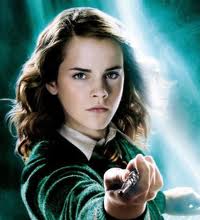
At About.com, Linda Lowen does a nice job of compiling various opinion pieces on the role women play in the series. She also reminds us that Rowling experienced sexism first hand from the publishing world when she was asked to not use her first name. So perhaps who better than Rowling to show how the world can be, in a fictional setting – and in doing so show us what it could be in real life, too – by creating female characters who are smart, brave, and not defined by the usual stereotypes.
Across creative mediums there’s an ongoing debate about what a strong female character is, who should create them, and how they should do it. Next week at San Diego Comic-Con, Her Universe will host a panel on exactly this subject:
[Thursday] 6:00-7:00 Her Universe: What Women Want in Their Female Sci-Fi Heroes — In the early days of sci-fi, female characters were the designated damsels in distress. Thankfully, today a new generation of creative minds are molding the strong, intelligent, and powerful female roles we see in some sci-fi films, TV shows, comics and other media. What are the differences between past sci-fi adventures with female characters and today’s feminine heroes that women can really connect with? How do you create truly interesting and unique female characters in the sci-fi universe? How are they different from their male counterparts? As the voice of a strong female role model, host Ashley Eckstein (voice of Ahsoka Tano, Star Wars: The Clone Wars) wants to bring this conversation to the forefront. Join Ashley for a dynamic panel of creative minds from television, film, and comics to explore this timely topic, featuring Dave Filoni (supervising director, Star Wars: The Clone Wars), Chris Sanagustin (SVP development and current programming for Universal Cable Productions), Bryan Q. Miller (executive story editor, Smallville; writer, DC’s Batgirl), Betsy Mitchell (editor-in-chief, Del Rey Books), Melinda Hsu Taylor (writer/producer, Lost, Medium; supervising producer, Touch), and Gail Simone (writer, DC’s Birds of Prey, Secret Six, Wonder Woman, and the new Batgirl comic). Room 25ABC
It’s a timely discussion considering that many women are clamoring for parity in the roles women are given in scifi and fantasy movies, books, and comics. On this blog I’ve discussed numerous times the uneven-handed portrayal of female characters in comics and Star Wars books.
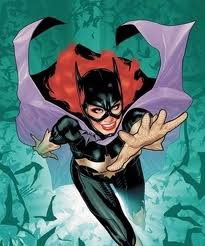
In her essay DC Comics and Women (the real question we should be asking), author Mairghread addresses the upcoming DC Comics reboot. If you’re unfamiliar with what’s happened, this fall the entire DC comics line will be restarted fresh – and what’s left is “significantly less female characters and only one female writer.” If they put a people counter in front of the DC booth at Comic-Con, one that identifies gender, I wonder: would they find the demographics that skewed? What Mairghread discusses, and which I feel is very true, is that people tend to write what they know, so if you don’t get women writers and artists into the mix it’s more likely than not a fair balance won’t be struck.
Consider Pixar Studios, for instance. It’s become an industry leader in animated movie-making. But did you realize that until next year, there will never have been a movie made by Pixar that features a story centered on a female character? It was a woman director – Pixar’s first woman director, Brenda Chapman – who brought the feature Brave to life. Unfortunately, she and Pixar have parted ways, and with a male director brought in to complete the project, the boys’ club is now intact again at the studio.
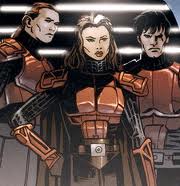
I also highly recommend the article Women and Superheroes: We’re Just Not That Into You by Brigid Alverson because it discusses various opinion pieces on the major comics franchises, which are steadfastly resistant in embracing a broader audience. The article also reiterates what I’ve been defining as the overarching reason why the current Star Wars EU, comics and books, is unable to captivate female fans: men tend to want to read about superpowers, superweapons, and complicated continuity, while women generally are more interested in the stories of the characters and the development of their relationships with family, friends, and, yes, love interests. Alverson also expresses the same sentiment I’ve said repeatedly: it’s possible to create comics, books, movies, and television shows that appeal to both these preferences – and end up with the better stories in the long run.
But even if the major books and comics franchises like DC, Marvel, and Star Wars want to change their mindset, how do they go about doing that? From the comics side, the article All the Comics in the World: Sexism points to shojo manga as an example of what the Powers That Be might need to do.
Because in the 1970s, an editor named Junya Yamamoto decided that his girls’ manga might sell better if they were drawn by young women rather than middle-aged men, so he hired a bunch of young female artists. Okay, that wasn’t the only reason women took over shojo manga. The other reason was that these women were all totally awesome at drawing manga. But if Yamamoto hadn’t been there to scoop up their work, they probably would have drawn less, or focused on the small-press world rather than the big publishers, or given up on comics.
Essentially: hire women, and they will come to the franchise.

For an example of women in power at a large franchise that has also been trying to embrace female writers, you have to look no further than the Star Wars EU. The trouble is that despite this, female fans have been running for the hills; with two female editors at the helm for nearly a decade, the Star Wars books have bled female fans from a high water mark in about 2003. (To be fair, though, they’ve lost plenty of male fans, as well.) Considering female geeks are roughly equivalent in numbers to their male counterparts, and women are known to be a stronger demographic in overall books sales, you have to wonder – with two female editors and one woman on each of the past two three-author teams for the flagship series – how it went so wrong.
There is actually a two-fold problem facing the EU books. One, the vision for Star Wars just hasn’t been held up, and that’s not really a male or a female problem. It’s just a miss by those in charge in connecting with the elements that make Star Wars a pop-culture phenomenon. Two, the storytelling has most certainly veered away from character-driven stories to tales of superheroes within an increasingly complicated continuity.
Karen Traviss and Christie Golden were brought into the flagships series, but neither one has proved that they truly can write for a female audience. Neither has Maya Kaathryn Bohnhoff, who works under a male author, Michael Reaves. Traviss jumped the Star Wars ship and now writes for Gears of War, and Golden’s mainstay is World of Warcraft. Both Golden’s and Bohnhoff’s original work failed to create effective strong heroines; Traviss’ original series protagonist is strong, but not so relatable to most women in her relationships and life choices. The women writing recently in the EU have had distinct problems portraying the canon female characters in particular, so much so that more women walked away from the franchise due to their influence than they drew into it.
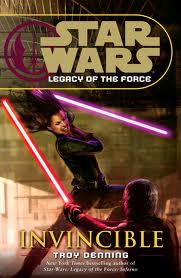
That doesn’t mean that I think bringing in more female creative types won’t work, or that hiring more women authors isn’t a key step to changing the status quo. But the Powers That Be can’t just fall back on stereotypes and assume that a female author will write strong female heroines well. Carefully examining each author’s previous work usually gives a very good indication of how well they’ll do at writing the strong female heroines in the EU canon cast or their own original additions to the EU.
The same point works in the other direction, too: men are quite capable of writing stories and characters that women can relate to. Joss Whedon, JJ Abrams, John Ostrander, Michael Stackpole, Timothy Zahn, and Aaron Allston are just a few examples of men who have successfully written strong female heroines that both men and women find compelling. If the Powers That Be do their research and backgrounding, they’ll not only find female authors who can make a great positive contribution to the EU, but some fresh male talent that can do so, too.
Ultimately my point is this: you can bring women into the franchises, but no one should assume that one move alone will fix the problem. In particular, the problem in Star Wars is that, for the most part, the women who have had a hand in creating the recent Star Wars EU aren’t truly representative of the average female fan. Add to that the recent flagship authors who hadn’t had a proven track record at writing stories that appealed to female fans, and they ended up digging themselves in a hole.
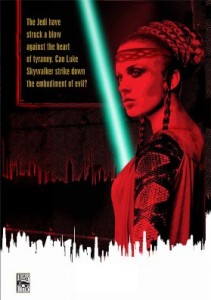
Have you ever stopped to take a look at the overall mix of Star Wars authors for the current EU novels? Very few have children. Nor do many have life experiences where they worked with powerful women who balance career and family life. It’s simply impossible to diversify your audience if the people writing for the franchise all come from the same frame of reference. In my mind this is why, for example, we are now seeing unrealistic family units and stunted romances in Star Wars. I believe that the intention behind taking Allana away from Tenel Ka was to allow Han and Leia a parenting do-over with their grandchild. But that move also suggests that the authors believed it was a better option for the story than showing a single mother balancing work and raising a child. Just imagine how many fans actually could relate to Tenel Ka struggling through that, though. Certainly a lot more fans would find common ground and empathy with that storyline than with septuagenarian Han playing Dad with a third-grader. Characters who are unrelatable become difficult for fans to connect with, and almost invariably interest will wane. Undermining women’s roles within the Star Wars EU has now become a pattern stretched across years of continuity, and it’s going to take an affirmative choice by the editors and authors to unwind the existing damage done. If DC Comics isn’t careful, they may find themselves in the same mess – women fans desperate for strong heroines but instead legions of lapsed or disillusioned fans. Hopefully, the next EU authors – and yes, I’m crossing my fingers some of them are women – get a little closer scrutiny for the work they’ve done previously and how it portrays female characters.
Most definitely I hope to see more women in creative roles not just at DC, Marvel, Pixar, and Star Wars, but everywhere. At the same time, I want women capable of effectively creating characters and storylines that women can relate to, or this Spaceship to Gender Equality in Scifi and Fantasy will take us nowhere fast.
- Ten Years of Hyperspace Theories - October 28, 2024
- Hyperspace Theories: The Heroine’s Journeys of the MCU’s Echo and What If? Series - August 29, 2024
- Hyperspace Theories: THE ACOLYTE and Star Wars Brand Management - August 7, 2024








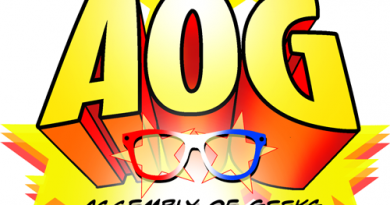
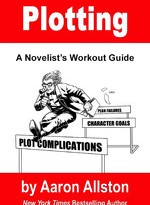
Another excellent article. I was expecting this to be more focused on certain women who seem to have an issue with writing strong females, and it wasn’t, but the piece doesn’t suffer for it.
I strive to be a man who writes for a female audience… but I often find that I write for an imaginary female who has the same interests as me. That makes this piece a good reminder for authors in general.
Pingback:Ben Skywalker’s Ascension into Domestic Violence – Why the Fate of the Jedi Hurts So Much « fangirlblog.com
The sad thing is that Christie Golden is not actually that bad a writer. Her works in the warcraft and starcraft universe are actually fairly good for tie in things. So reading this was kind of a shock. and don’t remind me of mara’s death. that was a stupid stupid move that still leaves most fans male and female angry and enraged to this day.